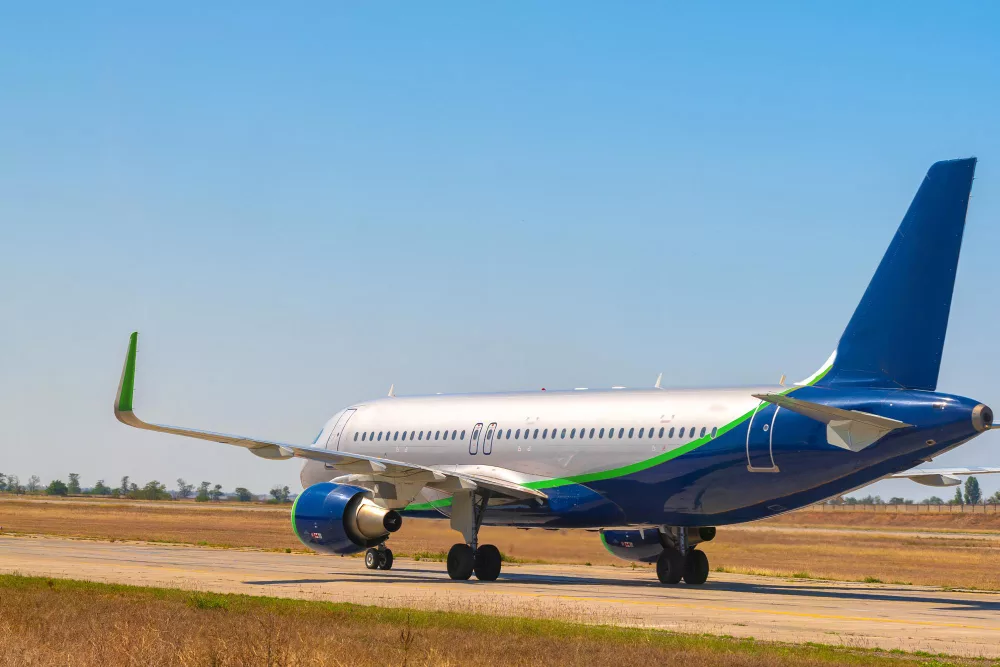Long-haul airline tickets represent a significant distance, sometimes equating to many hours and days of flying. Although there is no literal definition, long-haul flights last beyond roughly six to eight hours. These flights are usually applied to international travel, which includes flying across several time zones and occasionally involves layovers or connecting.
Long-haul flights offer much more time in the air and typically include jets specially designed for such trips. The problems that arise as a result of long-haul flights include:
- Jet lag
- Soreness from the extended seating periods
- Adjusting to different time zones
Airlines running long-distance trips usually offer many facilities like built-in entertainment, food, and services to improve the journey for passengers. Now, travelers need help finding comfortable tickets for long-haul flights, but Faresmatch is here to rescue them!
Why are long-haul flights stressful?
The experts will provide the best suggestions and comfort for their travelers. However, long-haul flights can be perceived as annoying or challenging for several reasons:
- Duration – In long-haul flights, one must spend considerable time in an enclosed environment. All of this is associated with sitting for a very long time.
- Providing limited Space – Airplane seats are always minimal, with little moving room. This may lead to the perception of imprisonment and also discomfort.
- Battling Jet Lag – Jet lag is mainly caused by crossing time zones, which causes an improper circadian rhythm. This may lead to tiredness, insomnia, and going out of sync with the local time.
- Causing sleep Disruption – Sleeping in a plane is challenging due to the distractions of noise, turbulence, and the sub-par sleep setting. This may lead to tiredness on arrival.
- Cabin Pressure and Dry Air – The cabin is very pressurized and dry, leading to dehydration and discomfort, such as itchy throat skin.
- Providing limited Amenities – Although the current in-flight entertainment and amenities have significantly advanced, a long flight still needs to be more exciting. Passengers might feel very bored as well during the trip.
- Inconsistent meal Timing and Quality – Airplane meals may occasionally coincide with the regular daily mealtimes and suit everyone’s taste. This can cause a lot of discontent and also dissatisfaction.
- Having potential for Disruptions – Various unanticipated interruptions may arise on long flights, including many delays, diversions, or technical problems, which add to the stress and uncertainty of the journey.
- Having health Concerns – The likelihood of developing DVT is increased by prolonged inactivity. One can reduce the risk by hydrating adequately and moving once in a while.
- Providing security Checks and Customs – Some additional security checks, customs procedures, and stopovers are typically incorporated into long-haul flights that take much time within the overall tension.
In most intercontinental travel, long-distance flights are almost always imperative; however, some issues can be curbed by proper preparation, flight status, low-fare calendar, self-care, and mindfulness.
What is a typical way of covering the long-haul flights?
Long-haul flights can be pretty demanding, but with remarkable planning and a conscious commitment to making the trip more pleasant, it is always feasible. Here are some things to keep in mind:
Hydration – Aeroplane cabins are very, super dry, so it is essential to drink lots of water. It would help to drink lots of water before, during, and after the flight. Alcohol and caffeine consumption should be limited as their use can lead to dehydration.
Move Around – Long periods of sitting can cause stiffness and also pain. Walk around the cabin briefly, stretch your legs, and do some in-seat exercises to prevent blood stagnation. This minimizes the chance of getting DVT.
Dress Comfortably – Opt for clothing that is both comfortable and also open up, as aeroplane temperatures are often unpredictable. Choose comfortable shoes, and consider wearing compression socks to help with circulation.
Sleeping Aids – If you get some rest on the aeroplane, ensure you have a neck pillow, blanket, eye mask, or earplugs.
Entertainment – Boredom can occur during long flights; hence, books, movies, music, or other forms of entertainment should be brought along to keep the passenger busy. Most aeroplanes have also developed personal entertainment systems, but preparing for the worst is always wise.
Snacks and Meals – Bring some snacks because the airline food might differ from what you like. You can also alter your eating plan to suit the destination time zone in a way that will assist in minimizing jet lag.
Time Zone Adjustment – If the time difference at your destination is vast, aim to alter sleep and eating timings by a few days beforehand to facilitate the adjustment.
Noise-Canceling Headphones – These are life saviors if you have a long flight. They help block the background sound and let one rest or enjoy their entertainment better.
Power Banks and Chargers – Ensure your devices are fully charged with the power banks if necessary. Some of the planes have USB outlets; remember to be prepared.
Jet Lag Management – Time difference should be minimized upon arrival, which will help reduce the jet lag effect. It is recommended to spend much time outdoors in the sunlight, keep yourself hydrated, and take short naps if necessary.
How are things that should always be kept under control necessary when travelling long distances?
Proper preparation before a tiring ride is essential for an easy-breezy travel. Therefore, you must ensure the availability of all airline reservations and travel documents, such as passports and boarding passes, to abide by the airline rules and not cause any difficulty during immigration.
Health precautions, like bringing medication and thinking about immunizations, play a big part in the general well-being during an extended trip. Thorough preparation before a long-distance flight significantly contributes to better comfort and pleasure during the journey.
Disadvantages of failing to prepare for long-haul flights
Lack of preparation before a long-haul flight can lead to numerous drawbacks that may have severe consequences for the trip. On the other hand, a significant disadvantage is that irregularities and difficulties may occur because of incomplete or missing travel documents – passports and the required visas.
Additionally, unfamiliar accommodation arrangements and travel means can confuse arrivals or cause additional stress. To conclude, due to insufficient preparation for long-distance flights, such disadvantages may vary from uncomfortable and inconvenient ones to hazardous health issues. Hence, the necessity appears very obvious in terms of proper pre-flight arrangements.


